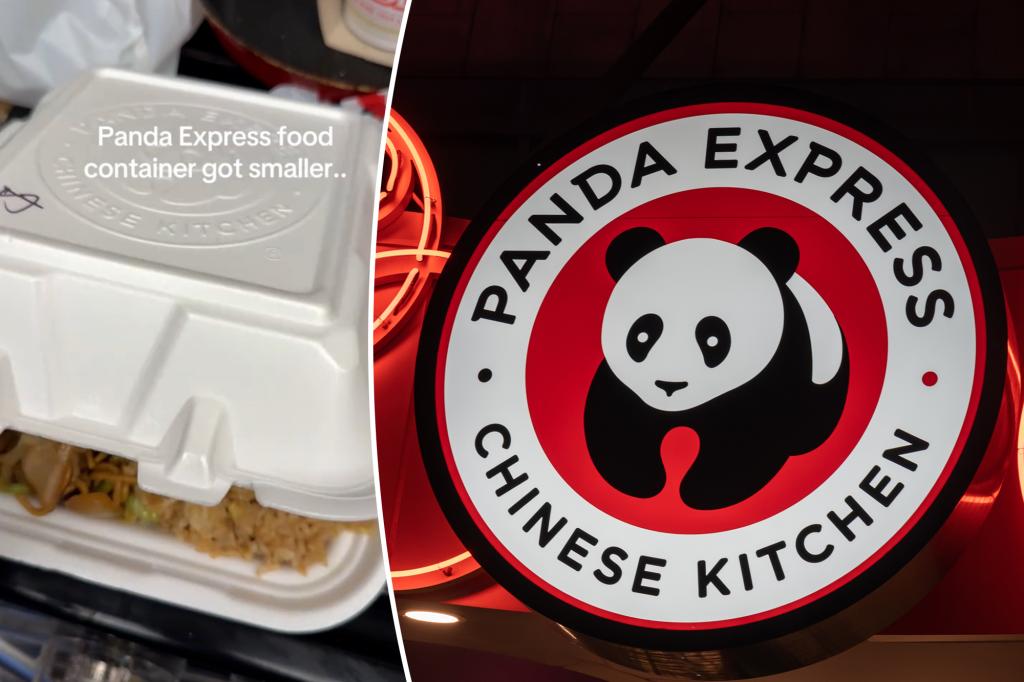One dissatisfied Panda Express customer recently took to TikTok to complain about what he believes is a shrinkflation problem at the popular Chinese fast-food chain. The customer, known as JayFamily, claimed that Panda Express had downsized their takeout containers while simultaneously increasing prices. In a video posted on TikTok, the customer showed a white to-go box containing a meal of meat, rice, noodles, and vegetables, stating that the portion was significantly smaller than what had been served previously.
The customer, JayFamily, proceeded to measure the depth of the food in the container with a fork, noting that it only measured about an inch and a half deep. He criticized Panda Express for supposedly changing to an even shallower box. He also pointed out that the box may look tall from the side, but it was not deep when viewed from underneath. JayFamily voiced his disappointment, suggesting that Panda Express had joined other food chains in reducing serving sizes in response to price hikes caused by inflation.
Despite the allegations made by the customer, Panda Express denied that they had changed the size of their containers or portions. A representative for the California-based chain stated that their top priority was to satisfy guests and that they remained committed to serving quality comfort food as expected by customers. The customer’s claims of shrinkflation at Panda Express raise questions about the integrity of portion sizes at fast-food chains and how companies might respond to economic factors such as inflation.
The issue of shrinkflation, where companies reduce product sizes but keep prices the same or increase them, is not unique to Panda Express. JayFamily’s comparison to Chipotle, another chain accused of decreasing serving sizes in response to inflation, highlights a broader trend in the food industry. As cost pressures continue to mount, companies may resort to tactics like shrinkflation to maintain profit margins without raising prices visibly. The impact of such practices on consumer trust and loyalty remains a concern for businesses.
The controversy surrounding Panda Express’s portion sizes underscores the importance of transparency and communication in addressing customer concerns. While the chain denies altering portion sizes, the customer’s feedback should prompt a closer examination of serving sizes and pricing policies. As consumers become more vigilant about changes in product offerings, companies must proactively address any discrepancies to maintain trust and loyalty. The allegations of shrinkflation at Panda Express serve as a reminder of the scrutiny that companies face in the age of social media and instant feedback.


